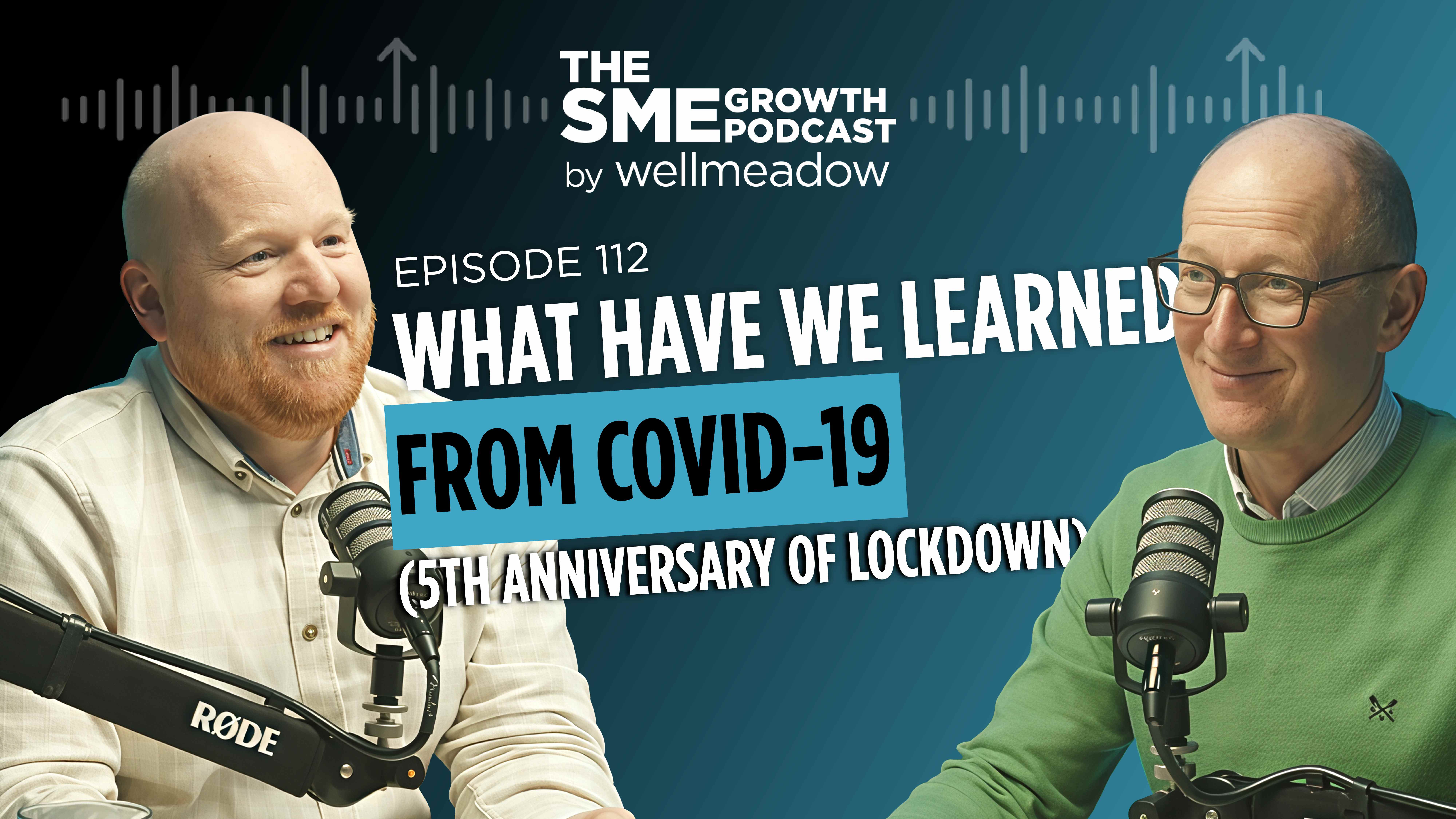In this timely episode, Dave Parry and Richard Buckle examine the critical importance of business continuity planning as we mark the fifth anniversary of the first COVID-19 lockdowns. Drawing from their extensive experience helping businesses navigate crises, they explore practical strategies for ensuring operational resilience in the face of unexpected disruptions. The hosts reflect on how the pandemic exposed fundamental weaknesses in many companies' preparedness and the valuable lessons that emerged from this unprecedented global challenge. They emphasize that while another pandemic may not be imminent, businesses face a multitude of other potential disruptions that require similar levels of planning and foresight. From communication protocols to flexible working arrangements, they provide actionable insights to help business leaders prepare for a wide range of scenarios that could threaten business operations.
Head over to our YouTube channel and subscribe for exclusive content and a chance to see the fully clothed versions of our episodes: @TheSMEGrowthPodcast.
You can listen to the full episode here
Listen to the full episode now



Key Topics Discussed
Understanding Business Vulnerabilities
- Examination of the diverse threats facing modern businesses, from pandemics to cyber attacks and supply chain disruptions
- Analysis of how seemingly minor disruptions can cascade into major operational challenges
- Discussion of the importance of regular vulnerability assessments to identify potential weak points
- Exploration of insurance considerations and working with insurers to understand coverage limitations
- Investigation of how business models themselves can create inherent vulnerabilities to certain types of disruption
Creating Robust Communication Protocols
- Detailed breakdown of emergency communication systems for reaching employees during crises
- Analysis of the effectiveness of different communication channels (SMS, email, dedicated apps) in emergency situations
- Examination of how to maintain clear lines of communication with customers and suppliers during disruptions
- Discussion of the need for redundant communication methods when primary channels may be compromised
- Consideration of the role of leadership communication in maintaining team morale during extended crises
Implementing Flexible Working Arrangements
- Evaluation of lessons learned from the pandemic about remote and hybrid working capabilities
- Analysis of technology requirements for enabling seamless transitions between office and remote work
- Exploration of policy considerations for maintaining productivity during disruptive events
- Discussion of team management strategies when physical workspaces become unavailable
- Assessment of the long-term business benefits of maintaining flexible working capabilities
Developing Comprehensive Continuity Plans
- Structured approach to creating business continuity plans that address various scenarios
- Importance of regular testing and updating of continuity procedures to ensure relevance
- Analysis of how to identify and protect mission-critical business functions during disruptions
- Discussion of financial planning and cash flow management during extended business interruptions
- Examination of recovery strategies for returning to normal operations after different types of disruption
Quotes to Remember
"How do you make sure that your company can keep running given a whole range of possible scenarios?"
"There's something about our ability to work more flexibly."
"There's threats all over for businesses that aren't keeping their eyes on the horizon."
"You've got to think about your business model and make sure that it is robust enough against various different challenges."
"As a business owner, just bear in mind stuff can go wrong. We're sailing on some choppy seas at the moment."
"Some people were saying, listen to your insurers. You need to check your policies for coverage limitations."
Top Takeaways
- Proactive Assessment Is Essential: Rather than waiting for disruptions to occur, regularly evaluate your business operations to identify vulnerabilities and develop mitigation strategies before they're needed.
- Communication Systems Are Critical: Establish multiple redundant channels for emergency communication with employees, customers, and suppliers that don't rely on single points of failure.
- Build Flexibility Into Operations: Businesses that can quickly adapt their working arrangements, supply chains, and service delivery methods are significantly more resilient when facing unexpected challenges.
- Test Your Continuity Plans: Regular scenario planning and practice drills help identify weaknesses in your continuity strategies and ensure your team knows exactly what to do when disruptions occur.
- Review Insurance Coverage Carefully: Work closely with insurance providers to understand exactly what scenarios are covered and what additional protections might be necessary for your specific business risks.
Head over to our YouTube channel and subscribe to The SME Growth Podcast. Share your thoughts and business challenges in the comments section of our community page: https://www.youtube.com/@TheSMEGrowthPodcast/community
